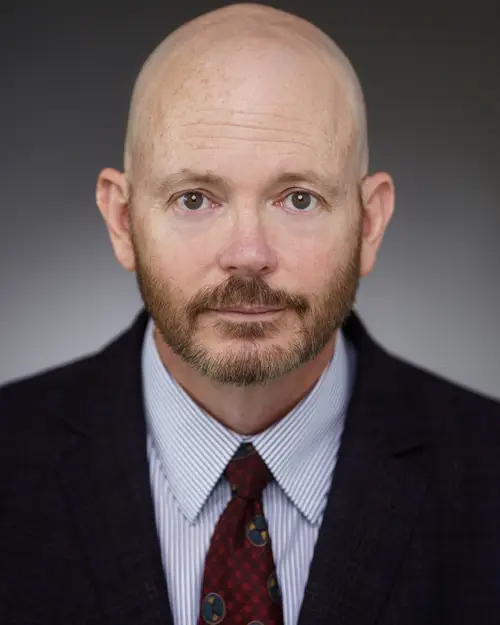After a crash, knowing who’s at fault can make or break your case. Here’s how Colorado law works—and how Fisher and Associates helps you fight back.
You’re Hurt. Your Bike’s Wrecked. And Everyone’s Pointing Fingers.
Motorcycle crashes are among the most devastating and misunderstood collisions on Colorado roads. One second, you’re riding through Denver’s city streets or on the open highway, the next, you’re lying on the pavement, injured, overwhelmed—and unsure who’s going to take responsibility.
One of the first questions that follows is:
Who’s at fault?
And the truth is, even when another driver clearly causes the crash, you may still be blamed. At Fisher and Associates, we help injured motorcyclists stand up to insurance companies, challenge biased investigations, and pursue the full compensation they deserve.
Here’s how fault is determined in motorcycle accidents in Colorado—and what to do if the finger is unfairly pointed at you.
Colorado’s Modified Comparative Negligence Law
In Colorado, determining who is legally responsible for a crash follows a system called modified comparative negligence.
Here’s how it works:
- You can recover damages only if you are less than 50% at fault.
- Your compensation is reduced by your percentage of fault.
- If you are found 50% or more responsible, you receive nothing.
For Example:
If your damages total $100,000, but you’re found 25% at fault, you would still receive $75,000. But if you’re found 50% or more at fault, you’re barred from recovering anything under Colorado law.
That’s why it’s crucial to have an attorney who knows how to push back on unfair blame and clearly tell your side of the story.
How Fault Is Investigated in a Motorcycle Accident Case
1. The Police Report
When officers respond to a crash, they’ll draft a report that often includes:
- Driver and witness statements
- Crash scene observations
- Citations (if any)
- A preliminary opinion on fault
This report can influence the insurance company’s view—but it isn’t final. Mistakes happen. Witnesses get it wrong. And unfortunately, bias against motorcyclists is real.
2. The Insurance Company’s Investigation
Insurers don’t exist to help you. They exist to protect their bottom line.
Expect them to:
- Look for ways to shift blame onto you, the rider
- Downplay your injuries
- Use recorded statements to twist your words
That’s why we strongly advise that you don’t speak to the other driver’s insurer and don’t give any recorded statements without legal counsel.
3. Eyewitness Accounts
Unbiased eyewitnesses can be powerful. If someone saw the crash and supports your version of events, their statement could be key. However, if witnesses are confused, distracted, or biased themselves, their accounts may not help.
Always collect contact information from anyone on the scene if you can.
4. Crash Reconstruction and Expert Analysis
In more serious cases, we work with accident reconstruction experts to analyze:
- Speed, braking, and impact points
- Skid marks and debris paths
- Mechanical failure or road conditions
This evidence helps establish fault based on facts, not assumptions—and it can turn the tide in tough cases.
Why Motorcyclists Are Often Blamed First
Let’s face it: motorcycle riders face unfair biases.
Even if another driver turned left in front of you, drifted into your lane, or blew through a stop sign, you may still hear things like:
- “Weren’t you speeding?”
- “Did you come out of nowhere?”
- “Were you wearing a helmet?”
This stigma is baked into many police reports, insurance claims, and courtroom conversations. At Fisher and Associates, we don’t let that go unchallenged.
The Cost of Being Found at Fault in a Motorcycle Injury Case
Motorcycle injuries are often catastrophic. The cost of being blamed—rightly or wrongly—can be life-altering.
You may lose the chance to recover:
- Hospital bills and emergency transport
- Ongoing medical care and physical therapy
- Lost income and future earning ability
- Pain and suffering damages
- Motorcycle repairs or replacement
- Emotional trauma or PTSD support
When the stakes are this high, you need more than basic legal help. You need someone who will take your case seriously, fight hard, and never stop pushing for what’s right.
Why Choose Fisher and Associates?
At Fisher and Associates, we bring military discipline, strategic thinking, and trial-tested experience to every motorcycle crash case.
Here’s what sets us apart:
- Attorney-First Representation: You’ll always work directly with a lawyer—not a clerk or case manager.
- Veteran-Led Firm: We bring the same mission focus and determination from our service to our legal practice.
- Strategic Investigations: We get to the truth, cut through bias, and build compelling cases that insurance companies respect.
- Proven Results: Our track record includes serious injury and wrongful death motorcycle cases across Colorado.
What to Do if You’re Being Blamed After a Motorcycle Crash
Don’t wait. Don’t argue with adjusters. And don’t try to “explain” your side without representation.
Here’s your next move:
1. Call Fisher and Associates for a Free Consultation
We’ll listen carefully, review your case, and tell you the truth—no pressure, no fluff.
2. We Investigate and Fight Back
We preserve evidence, challenge false narratives, and handle every conversation with the insurance companies.
3. You Focus on Healing
We handle the legal burden so you can focus on recovery, peace of mind, and moving forward.
Blamed for the Crash? We’ve Got Your Back.
Motorcycle accidents in Colorado often come with finger-pointing, biased assumptions, and insurance games. At Fisher and Associates, we see through the noise—and fight for the truth.

Paul Fisher founded Fisher & Associates P.C. in order to fight for justice and ensure accident victims receive the compensation they deserve. He is licensed to practice law in both the State of Colorado and the United States District Court for the District of Colorado, and focuses on all aspects of personal injury law, including car accidents, motorcycle accidents and insurance bad faith.

